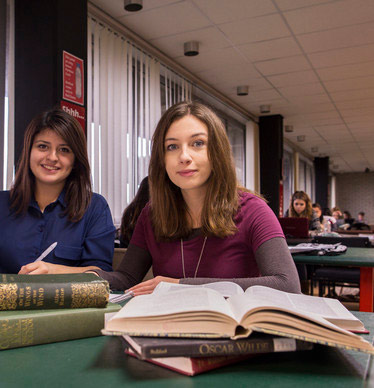The Centre for Contemporary Poetry (ContemPo)
‘ContemPo’, which was founded in 2006, is the everyday or ‘working’ title of the Centre for Contemporary Poetry, which is a collaborative research centre co-ordinated by the English Departments of Aberystwyth University, Bangor University, Plymouth University and the Universities of Brighton and Surrey. ContemPo is a ‘critical/creative’ grouping devoted to the interests of poets who are also academics, academics who are also poets, and those who are ‘merely’ one or the other. ContemPo has a special (but not exclusive) interest in investigating experimental and performance poetries and their poetics. The Centre's core-activity is a programme of video-linked papers, seminars, and performances by academics, postgraduate students, and invitees of the three full-member institutions. For further information visit the ContemPo web site.
The David Jones Centre
The David Jones Centre supports research on the history and impact of Modernism in Wales and, more broadly, on the creative interaction of word and image, the textual and the visual. The Centre hosts an annual conference and seminar, and seeks to promote the exciting possibilities for new research offered by the literary and artistic archives at the National Library of Wales. If you would like more information, please contact Luke Thurston.
The Institute for Medieval and Early Modern Studies (IMEMS)
The Institute of Medieval and Early Modern Studies (IMEMS) is part of the research and enterprise partnership between Aberystwyth and Bangor Universities. It was launched in 2006 and is a collaborative interdisciplinary research institute. IMEMS brings together researchers and postgraduate students from both Universities working in the fields of history, literature, music, theology and Celtic studies, in the period 500-1800.
Its core activities include a fortnightly video-link research seminar which is broadcast live across Wales. IMEMS also organises conferences, workshops and colloquia, which are attended by scholars from around the world. IMEMS provides a lively research environment for postgraduate students, whether at Masters or PhD level. With the regular programme of research seminars, student-led workshops and postgraduate training sessions, IMEMS offers a supportive and stimulating context for postgraduate work in medieval and early modern studies. For further information visit the IMEMS web site.
Centre for Creativity and Wellbeing
The Centre for Creativity and Wellbeing is a research centre based in the Department of English and Creative Writing. It was established to research and promote the role of creative practice in a range of wellbeing contexts.
The Centre brings together researchers working in complementary areas to develop long-term collaborative research projects. We have built partnerships with public organisations and charities, including Public Health Wales, Hywel Dda NHS University Health Board, The Fathom Trust, The Carers Trust and The Shaw Foundation. This has allowed us to run a variety of projects. Recent successes include:
- Marginalized Writers TakeOver day
- ‘Narratives of Personal Renewal’ wellbeing days for NHS staff
- ‘Writing and Making for West Wales Carers’
- ‘Imaginary Homelands’ with refugee communities
- Writing archaeology at Strata Florida
- Poetry Harvest at Caerhys Organic Community Agriculture, Pembrokeshire
The Centre has celebrated a number of significant recent publications:
- Unreal City: Depersonalization and Creative Writing, Matthew Francis, Routledge, 2022.
- Night Terrors: Dreams, Sleepwalking and Unconsciousness, Alice Vernon, Icon Press, 2022.
- Creativity and Anxiety: An Uncertain Relationship, Gavin Goodwin, Palgrave MacMillan, 2023.
- Plus Ultra, Sarah Fletcher, Cheerio, 2023
- Dream Latin, anthology ed. Jacqueline Yallop, Broken Sleep Books, 2023.
- Into the Dark: What Darkness is and Why it Matters, Jacqueline Yallop, Icon Books, 2024
We always welcome inquiries from potential partners or those looking to run activities which might fit the work of the Centre. We’re also happy to discuss opportunities for potential PhD students. Contact Jacqueline Yallop in the first instance on jay4@aber.ac.uk


